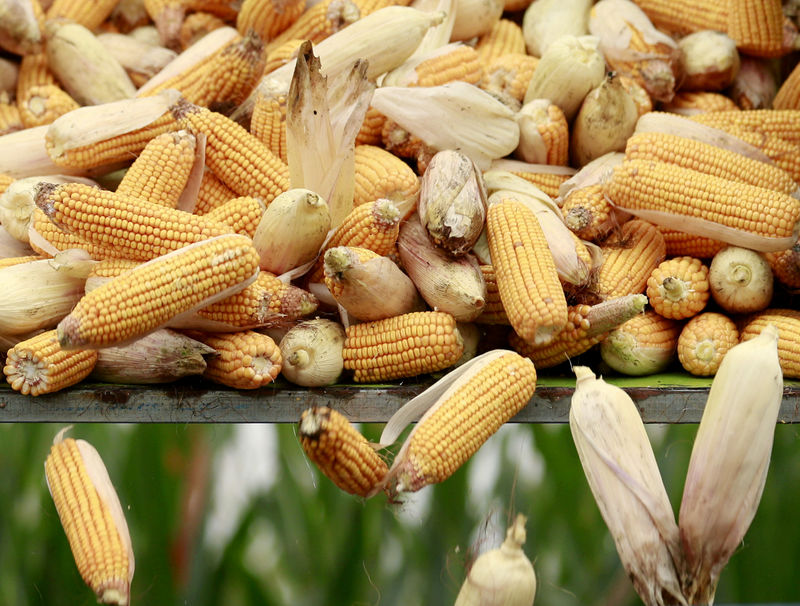By Hallie Gu and Dominique Patton
BEIJING (Reuters) - China's bold plan to blend renewable fuels into its gasoline supply within three years will revolutionise its fledging biofuels industry, industry players said, likely spurring billions of dollars in investment in ethanol factories.
On Wednesday, state media reported Beijing plans to roll out the use of a gasoline known as 'E10' - containing 10 percent ethanol - across the world's largest car market by 2020. It's the first formal timeline in a radical push that's part of a broader drive to clean up the environment.
The move doubles up as part of the government's effort to boost industrial demand for corn. Beijing must find a way to work off a stockpile of 200 million tonnes - so big it could feed China's 1.4 billion people for more than a year - after decades of buying the crop to support farmers in a country haunted by post World War II famine.
"More money will now flow in, including from private and foreign investors," said Li Qiang, chairman of consultancy JC Intelligence Ltd, predicting boom times for ethanol. More than 10 new ethanol plants are planned in the northeastern cornbelt, according to JC Intelligence.
Most of those will go on line next year, adding 3 million tonnes of capacity, the consultancy predicts. Reuters estimates, based on industry officials' calculations, suggest an ethanol plant of average capacity - about 300,000 tonnes per year - costs about 1 billion yuan (£115.46 million) to build.
While sceptics may question the feasibility of such a rapid rollout, Wednesday's news also comes days after Beijing said it is studying when to ban production and sale of cars using fossil fuels. It adds to potential headaches for the oil industry, which could lose a sizeable portion of the 150-million-tonne gasoline market worth 26.2 billion yuan at current retail prices.
MAJOR VICTORY
The planned rollout marks a major victory for domestic ethanol producers, which have struggled to compete with cheap oil without a nationwide mandate that requires a minimum amount of biofuel must be blended into fuel - similar to the United States and Brazil, the world's top two markets for ethanol.
Ethanol-blended gasoline makes up only a fifth of gasoline use in China for now.
"We have been waiting for this policy for many years and now the shoe has finally dropped," said a manager at a major ethanol producer, who declined to be named as he was not authorised to speak to media.
According to Reuters calculations, as much as 15 million tonnes of ethanol could be needed each year to meet new demand. That's well above the target Beijing announced in December last year - doubling output to 4 million by 2020.
It could also mean building as many as 36 new plants each with 300,000 tonnes per year of capacity at an estimated cost of 36 billion yuan, according to Reuters calculations based on experts' estimates.
Those factories would need 45 million tonnes of corn as feed, potentially depleting the government stockpile in just over four years.
Experts question how Beijing will implement the plan so quickly and on such a vast scale, but Beijing is likely to take a leaf out of the United States' play book.
Its decade-old renewable fuels policy illustrates how government backing has transformed the U.S. cornbelt and built a biofuels sector. Ethanol demand soared by 208 percent and industrial corn use more than doubled between 2005 and 2010.
But the seeds of ethanol growth in China - the first in a decade - emerged this year already, as firms sought to take advantage of lower corn prices and hefty import tariffs on ethanol introduced in January, fuelling the plant construction in the northeast.
(Graphic - China plans to roll out the use of ethanol in gasoline by 2020 in a drive to boost corn demand: http://reut.rs/2jo7KPm)
